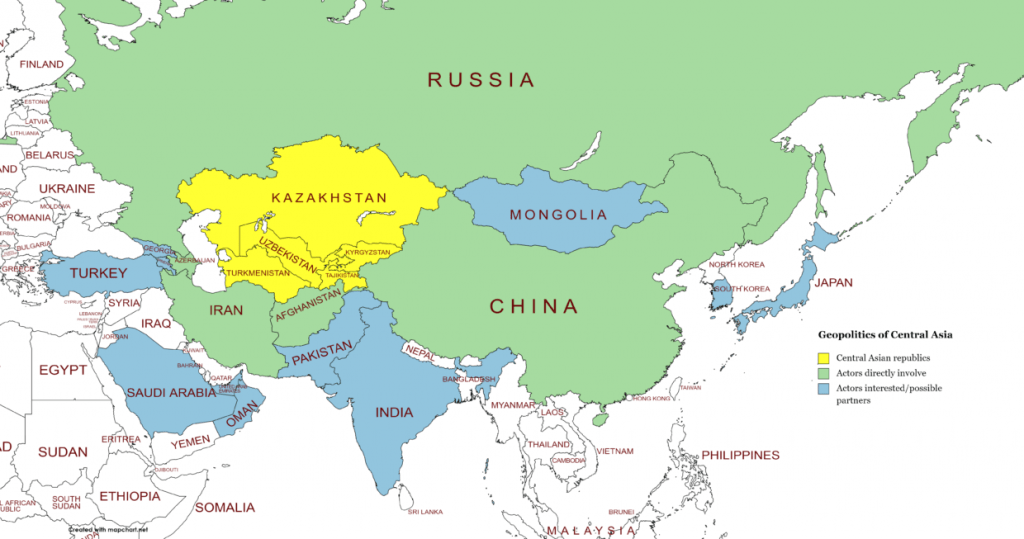Kazakhstan and UAE strengthened their economic partnership

The recent intergovernmental agreement on implementing joint projects between the United Arab Emirates and Kazakhstan underlined the Emirati strategic interests in the Central Asian market characterised since Abu Dhabi has conspicuously invested in regional infrastructural projects.
On October 11th, 2021, during the Kazakh Government’s official visit to UAE, the Prime Minister of Kazakhstan Askar Mamin met with Deputy Prime Minister, Minister for Presidential Affairs of the UAE Sheikh Mansour bin Zayed Al Nahyan to discuss further cooperation and investment opportunities in joint projects.
During the official visit, Kazakhstan and the UAE authorities signed an intergovernmental agreement on implementing joint projects totalling over 6 billion dollars. As Mamin reported to the media, currently, Emirati companies are involved in implementing eleven large investment projects in his country with a total value of over 3.5 billion dollars.
Why does it matter?
Because Kazakhstan and the UAE are looking to enhance their cooperation and establish a long-term strategic partnership to develop projects in priority sectors of the Kazakh economy such as energy, agro-industrial, transport and logistics, pharmaceutical and finance. As reported before (UAE Investment Interests In Kyrgyzstan; UAE investments in Turkmenistan confirm Abu Dabhi’s potential role in Central Asia), the United Arab Emirates are targeting Central Asia to exploit the regional market’s potentiality offers and utilise the Central Asian strategic role in the Eurasian geopolitical chessboard.
Undeniably, in the last decade, Abu Dhabi has grown its investments and commercial presence in Central Asia, rising as one of the most dynamic Gulf countries in the region. Considering the new alliances and trends in the region after the U.S. troops withdrawal from Afghanistan (The new geopolitical game of Afghanistan), the rise of the Chinese Belt and Road Initiative, and the significant role of the Russian military presence in some Central Asian republics to guarantee security and stability (The effect of terrorism in Afghanistan on Russian-Tajik relations), a prominent Emirati financial and political involvement in the region might influence local dynamics and U.S. – China – Russia confrontation and also counterbalance the Qatari and Iranian strategies in Central Asia (Iran e Kirghizistan discutono la cooperazione regional; Cooperation among Qatar and Uzbekistan).
Since Central Asia plays a strategic geopolitical role in the international arena, recent events have highlighted Gulf States’ strategies to expand their influence in the region with a tacit consensus from the United States and the European Union that would like to see Central Asia more independent from Russia and China. The UAE investments in Turkmenistan, Kazakhstan, and Kyrgyzstan confirm this geopolitical trend and Abu Dhabi’s interests in becoming one of the leading partners for Central Asian republics since these markets have enormous potentialities in different markets fields.
